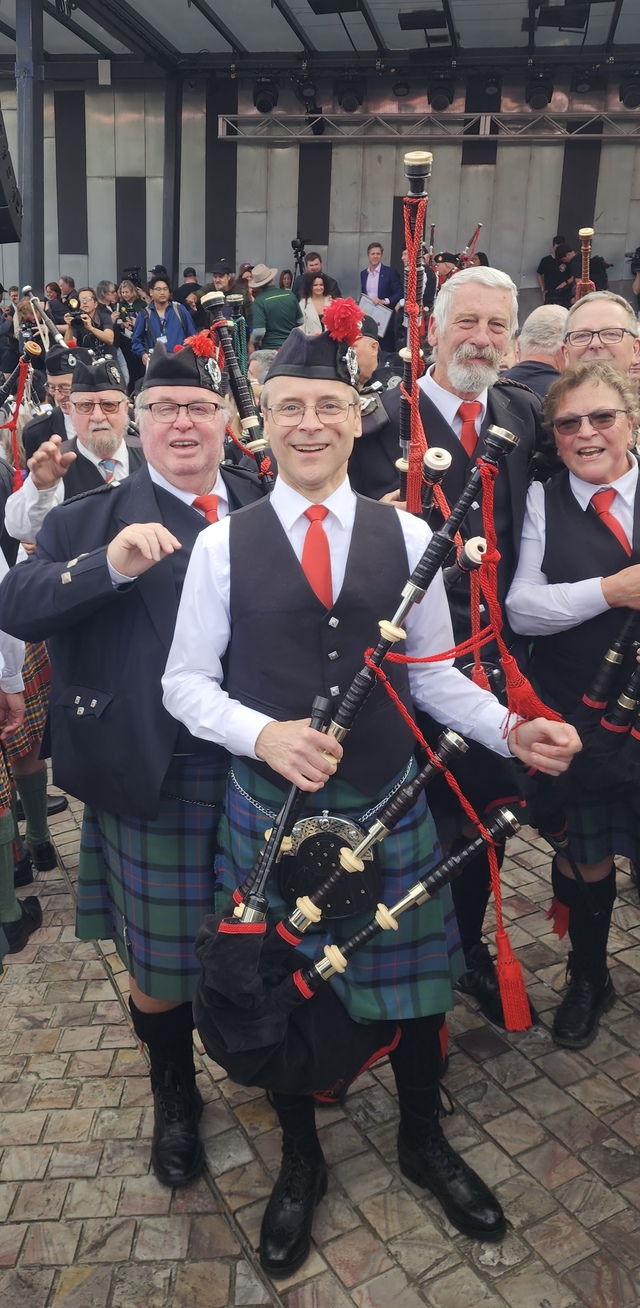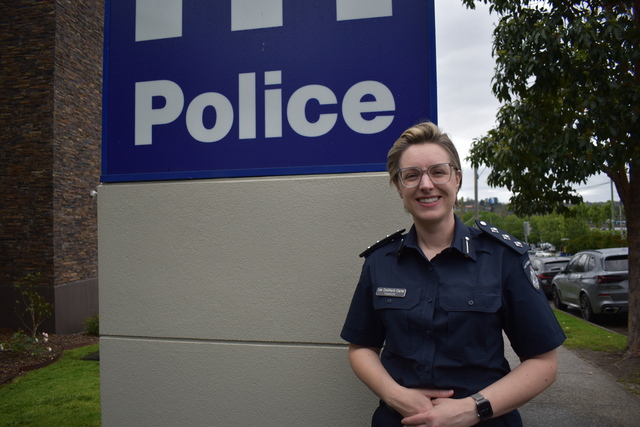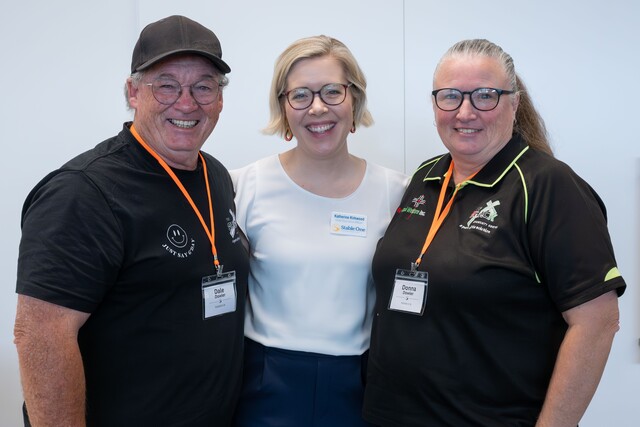– Seth Hynes
A VIBRANT, multi-talented singer and all-round good bloke, Ulick O’Boyle was universally liked by the communities in which he made his mark.
In Healesville, his music, his colourful approach to life and Irish humour resonated with the friends he made at the Men’s Shed, Golden Wattle House and the St Brigid’s parish community.
Born in 1932, Ulick attended school at Roscrea in Ireland where he was taught by the Cistercian Monks.
His connection with the Cistercian order was a thread throughout his life and a link to the Yarra Valley where some of the Rosscrae monks established at Tarrawarra Abbey.
When Ulick and Noelene married in 1984, Fr Cronin Sherry, who had been Ulick’s art teacher in Ireland, made the trip from Tarrawarra Abbey to Canberra to marry them.
On 7 July, Fr Mark Ryan from the abbey officiated at Ulick’s funeral service.
Ulick emigrated from Ireland in 1962 to work as a concreter on the Snowy Mountains Scheme.
It was just a short time before his radiography qualifications were recognised and he was ‘promoted’ to supervisor of the first aid station.
In his first-aid role, Ulick witnessed firsthand the dangers faced by construction workers at the site.
The Snowy Mountains Scheme, the enormous hydro-electric plant that generates electricity for the ACT, New South Wales and Victoria, and its construction which took place between 1949 and 1974, provided inspiration for much of Ulick’s music career.
Ulick ran the Settler’s folk group for almost 40 years. Ulick, his first wife Anne Rutherford and Peter Barry performed as a trio and played a swag of songs recounting Ulick’s experiences at the Snowy Mountain Scheme.
Pete West was a member of the Settlers band for more than a decade. In a tribute to Ulick in the Monaro Folk Society newsletter, he wrote “his songs gave us a musical picture of the lives and struggles of workers on the Snowy scheme”.
The hardship, joy and community spirit of the Snowy were all there in his songs.
As the Snowy Mountains Scheme was a collaborative effort between more than 30 nations, many of Ulick’s songs demonstrate his commitment to multiculturalism long before it was fashionable.
“Ulick’s songs can be sad or lighthearted, but they are always heartfelt and composed and sung with authority. They are, in short, the real deal,” Mr West said.
In 1966 the Settlers were eagerly signed onto the RCA record label, and a successful career was launched.
The Settlers recorded two LPs, one of which was the popular Settlers Sing Songs of the Snowy Mountains which was released in 1966.
Ulick wrote many songs while living in Canberra.
Subsequently, while he was living in Canberra, Ulick, with new members of his group, made other recordings including West of Cooma, Snowy Rambler, Medley Street, The Hero of Waterloo and Mountain Tracks
Ulick toured with the Settlers until 2002. While based in Canberra, the Settlers performed concerts and bush dances at the Canberra Irish Club, the Merry Muse and the National Folk Festival.
And, in 1999, as part of the 50th anniversary of the Snowy Mountains Scheme, the band performed before an audience of several thousand people in Jindabyne
Ulick released Kiandra, another folk CD informed by his experiences on the Snowy project.
He continued his work as an X-ray radiographer until his retirement in 2002 when he and Noelene moved to Healesville to be closer to family.
When Ulick moved to Healesville, he recorded Kiandra and Beyond with Paul Davey, Perin Davey, Ken White and Fiona White.
Ulick’s time was relatively short in Healesville, but he made many friends.
He joined the Men’s Shed where he enjoyed the company of men.
Men’s Shed assistant co-ordinator and friend “Ollie” Oliver reminisces that Ulick would often enter discussions around the table and come out with “surprising and extremely witty comments”.
Ulick was very strong even in old age, and had been “keen about boxing” in the past, Ollie said.
Louisa Williams, program manager at of the Golden Wattle House in Healesville, described Ulick as a very vibrant, colourful character.
“He loved his life, loved his property, loved his animals and loved his music,” she said.
“Music was his life.”
Louisa said Ulick would often play his mouth organ in performances at Golden Wattle.
“Those jam sessions lit up his whole face,” she recalls happily.
She said Ulick enjoyed his history and anything to do with the history of wars, an appropriate interest given the significant history behind the man.
Sadly, Ulick was diagnosed with Alzheimer’s disease five years after he and Noelene moved to Healesville, and passed away on 7 July, aged 77.
He is survived by Noelene, and his step daughter Claire, one son Kieran, his three daughters Shannon, Odilla, and Grainne, and their families including five grandchildren.
Ulick O’Boyle lived a full and happy life, amassed many devoted friends and led a music career informed by his experiences in one of the grandest events in Australian history.
A recurring word in his friends’ memories of Ulick is ‘colourful’. A bright, upstanding man, Ulick will be fondly remembered by all whose lives he touched.
Colourful man loved by many
Digital Editions
-

Study finds oversight, accountability and transparency lacking in global wildlife trade
A new study by researchers from universities and research institutions across Australia, the United States, Europe and South America has expressed concern about the lack…





